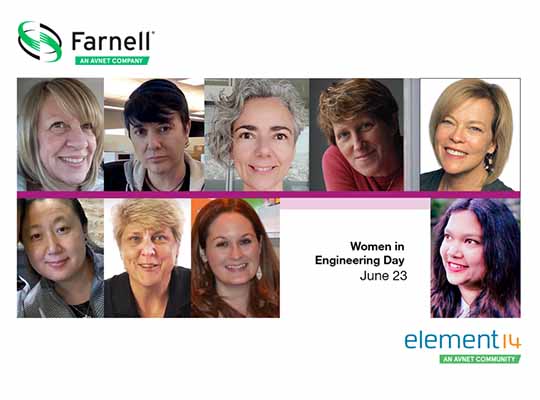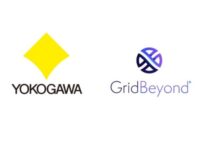element14 has announced the results of its Women in Engineering 2021 survey that shows positive support for women in engineering from all genders and a great similarity between the opinions of men and women about the need to address gender equality. While women still play on the backfoot in the engineering/electronics industry, the latest research from element14 highlighted that people believe the most important thing to aim for is the equal treatment of all genders.
This year’s survey of more than 370 people worldwide studied that all genders have similar views about the advantages women bring to the engineering industry and believe that inequality needs to be talked about. A key step to interact about inequality is to introduce more women into leadership positions where they can act as role models and mentors to other women in the industry. While women experience sexism in engineering, and all genders were united in their belief that this should not happen, respondents of other genders were more in favor of establishing stronger and more strictly enforced equality policies to prevent sexism in work organizations.
Although research depicted strong agreement on various issues, there were some key differences untouched. Research showed that women were more likely to cite good pay as a benefit of working in engineering, however, they believe that the gender pay difference is still a concern. Women were also less worried about the need to travel for work than other genders think and only 15% of women surveyed suggested reduced travel would be helpful, in contrast to 25% of all other respondents believing this to be important for women.

element14, an Avnet community, released the results from the Women in Engineering 2021 survey to coincide with International Women in Engineering Day and help shed light on women’s experiences and career paths as well as the wider challenges and opportunities in the engineering/electronics industry. The survey was open to all genders and ran for three months between March and May 2021. Most respondents were aged between 25 to 54 and just over half cited they had more than 10 years experience in the industry.
Rob Rospedzihowski, President Sales for Farnell EMEA said, “The industry has come a long way but we can always do a better job, and the job is never finished. This centres on equality and fairness for all. Women have told us that they don’t want to be part of a quota – they want to be recognised for what they do and given the opportunity to show what they can do. This is a hugely important message to get out. It’s about recognising each person in your team and your business as an individual. On Women in Engineering day I encourage this conversation. Ask yourselves, your colleagues and your teams ‘’What can we do better?’ because it’s through these conversations that we can make change happen.”
Dianne Kibbey, Global Head of Community and Social Media for element14 says: “This important research has enabled us to gain valuable insights directly from members of our industry, allowing us to better understand what is working well for women in the workplace and what could be improved. The survey identified some clear challenges for our industry, however, the results also offered a positive outlook for the future with both sexes presenting united views on topical issues such as the need to enforce stronger equality policies. We look forward to sharing some of the amazing success stories from women who are already achieving great things in our industry. Women should have confidence in themselves and their abilities to continue inspiring others and to drive positive change in engineering.”
The survey unearthed many anecdotal success stories showcasing how women are contributing to the electronics industry, including:
· “During my time as an intern…I have worked on/taken charge of projects for some bigger companies. Some of those projects were worth more than $1 million. This was all done while attending school full time and working full-time.”
· “My proudest achievement is taking a failing electronics manufacturing business unit and completely turning it around. My second would be stepping into a leadership role and setting a record for highest employee engagement and satisfaction in the manufacturing organization.”
· “Taking over a project that was failing which included the creation of a new API with a third party and turning it around to the point where the company I was working for in the past won an award for its successful delivery.”
· “Writing an oscilloscope display program to display the results of data gathered from tests on a monitor back when oscilloscopes were only analogue and did not have any way to accept any sort of external data source.”
There was an overwhelming response from all genders encouraging women to be more confident, trust in their abilities, and take on the challenge of working in engineering. Some of the top drivers leading women to enjoy a career in engineering included the opportunity to work on diverse projects (23%), getting a preview of what’s coming next in technology and seeing that come to life (15%), flexibility, and work/life balance (12%).















